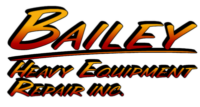The Importance of Operator Training for Heavy Equipment

In the field of heavy machinery, operator training plays a vital role in ensuring the safety, productivity, and success of any project. Engaging in proper training and acquiring the necessary skills and knowledge is critical for all operators of heavy equipment. This blog explores the significance of operator training for heavy machinery and how well-trained operators can make a substantial impact on productivity, safety, and the overall success of a project.
1. Ensuring Safety:
One of the primary reasons why operator training is crucial for heavy equipment is to ensure the safety of both the operator and those around them. Operating heavy machinery without proper training can be extremely dangerous, leading to accidents, injuries, and even fatalities. Skilled operators who have undergone thorough training understand the risks involved and are capable of adhering to proper safety protocols. They can identify potential hazards, practice safe operating techniques, and react appropriately in emergency situations.
2. Increasing Productivity:
Well-trained operators have a profound impact on project productivity. They possess the knowledge and expertise to utilize heavy equipment efficiently, leading to increased operational speed and reduced downtime. These operators are familiar with the intricacies of various machinery, allowing them to optimize performance and achieve higher efficiency levels. By utilizing equipment effectively, trained operators can complete tasks in a shorter time frame, leading to enhanced productivity and cost-effectiveness.
3. Minimizing Equipment Damage:
Operator training significantly reduces the likelihood of equipment damage. Untrained operators may not be aware of the optimal operating procedures, leading to unnecessary wear and tear on the equipment. Inadequate maintenance and improper use can result in breakdowns and costly repairs. Trained operators, equipped with the knowledge of equipment maintenance, can identify potential issues, perform routine inspections, and handle machinery with care, minimizing the risk of damage. This not only helps extend the lifespan of heavy equipment but also reduces the expenses associated with repairs and replacements.
4. Enhancing Project Quality:
The quality of a project heavily relies on the skills and expertise of the operators responsible for operating heavy machinery. Properly trained operators possess the ability to carry out tasks accurately, ensuring precision and accuracy in every aspect of the project. They understand how to operate machinery in a way that provides smooth and consistent results, leading to high-quality outputs. Well-trained operators can also identify and rectify any issues or errors in real-time, preventing deviations from project specifications and maintaining the desired level of quality.
5. Improving Efficiency and Cost Savings:
Efficiency and cost savings go hand-in-hand with operator training. Trained operators are equipped with the knowledge to use heavy equipment in the most efficient manner. They understand the capabilities and limitations of machinery, allowing them to plan and execute work in the most optimal way possible. By maximizing efficiency, trained operators can save valuable time and resources, decreasing operational costs and increasing profitability. They can also make informed decisions about equipment utilization and equipment selection, resulting in better cost management.
Summary:
Operator training is of utmost importance in the realm of heavy equipment. By providing operators with the necessary skills and knowledge, their impact on productivity, safety, and project success can be significant. Ensuring safety, increasing productivity, minimizing equipment damage, enhancing project quality, and improving efficiency and cost savings are just a few of the benefits that well-trained operators bring to a project. Investing in operator training is a crucial step towards achieving success in any heavy equipment-based endeavor.
Need Heavy Equipment Services in Lexington, OR?
Bailey Heavy Equipment Repair, Inc. is a family-owned and -operated heavy-duty equipment repair service based in Lexington, Oregon since 1984. We specialize in providing for all of your equipment repair needs, whether it’s farm equipment, utility equipment, trucks, cylinders, or something else entirely. We offer ANSI Inspections and Dielectric testing, field repair and on-site repair, line boring services, welding, machining, hose assemblies, steel sales, and other machine products. Give us a call today for more information!
